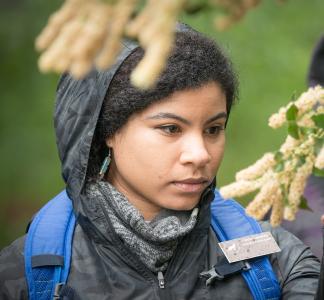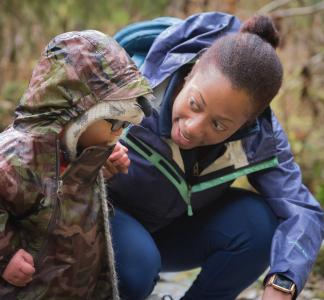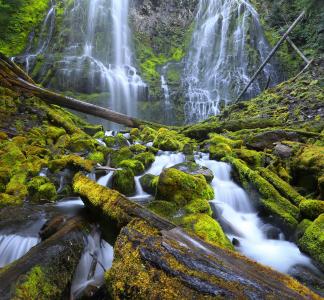Building a diverse conservation community
Kevin McNeal
We are helping build a new and more inclusive conservation community
The future (and present) of this nation is vibrant and diverse—a quilt of cultures, creeds, races, abilities, body types, sexual orientations and gender identities. We recognize that in the past, the conservation community has served the needs of only a narrow range of Americans, and that needs to change.
We are working to acknowledge and better understand these failures and to embed in our mission a focus on diversity, equity and inclusion. That means grappling with the past and re-charting our course; creating a more inclusive narrative of who belongs in the outdoors; promoting connections to wild places for underrepresented communities; and reducing barriers to outdoor recreation and employment in the conservation community.
Exciting new voices like Outdoor Afro, Latino Outdoors, Pride Outside (which was founded by one of our staffers and is supported in large part by our organization) and the Diversify Outdoors coalition are leading the way on this important work. We are inspired by these powerful organizations and leaders and committed to working alongside them to build a new public lands tradition that centers around equity.
In the past, the conservation movement has not truly represented the needs of all Americans. People of color, the LGBTQ community and others have often been left out. While we work to ensure public lands are accessible to everyone, we must also build relationships with diverse partners and learn from their unique experiences with the outdoors.
What we're doing
-
Diversifying federal agencies
We work closely with the Next 100 Coalition, advocating for federal agencies to take meaningful steps that emphasize the importance of diversity. These include changes in agencies' recruitment and hiring practices and identifying aspects of the American story that are not adequately represented in parks, historic sites and other public lands.
-
Supporting diverse partners
We support underrepresented communities through work with groups like GreenLatinos, Outdoor Afro and Pride Outside. This includes sponsoring events like the Next 100 Coalition Summit; the Green Latinos Summit; People of the Global Majority in the Outdoors, Nature, and Environment; Girl Trek’s Sweat Protest; Color the Crag Summit; and the first-ever LGBTQ Outdoor Summit, which we co-hosted in Seattle in 2017.
-
Protecting public lands and cultural landmarks
We join groups and individuals from underrepresented communities in advocating for public lands and other environmental protections. We also work to preserve the Antiquities Act as a tool to more equitably and holistically recognize cultural and historic landmarks like Stonewall National Monument and Birmingham Civil Rights National Monument.
-
Acknowledging the past
We’re developing a curriculum for young adults about the history of public lands that addresses past injustices and marginalization of some communities. We believe that only once we honestly and openly approach this history can we build a public lands system that is inclusive, representative and equitable for all.
What you can do
Join our WildAlert list for opportunities to tell elected officials that wildlands and cultural sites deserve protection.



